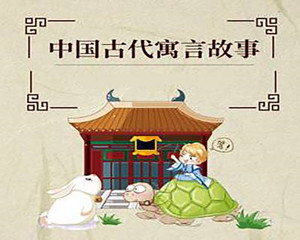古代寓言原是民间口头创作,文学体裁的一种。含有讽喻或明显教训意义的故事。它的结构简短。主人公可以是人,可以是动物,也可以是无生物。多借用比喻手法,使富有教训意义的主题或深刻的道理在简单的故事中体现,而还需要自己去理解,思考,这就是和西方寓言的不同之处。

《古代寓言·不认输》
楚人有生而不识姜者,曰:“此从树上结成。”
或曰:“从土里生成。”
其人固执已见,曰:“请与予以十人为质,以所乘驴为赌。”
已而遍口十人,皆曰:“土里出也。”
其人哑然失色,曰:“驴则付汝,姜还树生。”
——《雪涛小说》
The Man Who Would Not Admit his Mistake
In the state of Chu lived a man who did not know where ginger grew. He thought it grew on trees.
Someone told him it grew in the ground.
He could not believe this was true, and said, "I will lay a bet with you with my donkey. Let us ask ten people; if they all say it grows in the ground, the donkey is yours!"
They asked ten men who all said that it grew in the ground.
"Take the donkey!" said the man. "But, all the same, I know ginger grows on trees!"
Stories by Xue Tao
(杨宪益、戴乃迭 译)
更多精品翻译素材,敬请关注可可英语。











